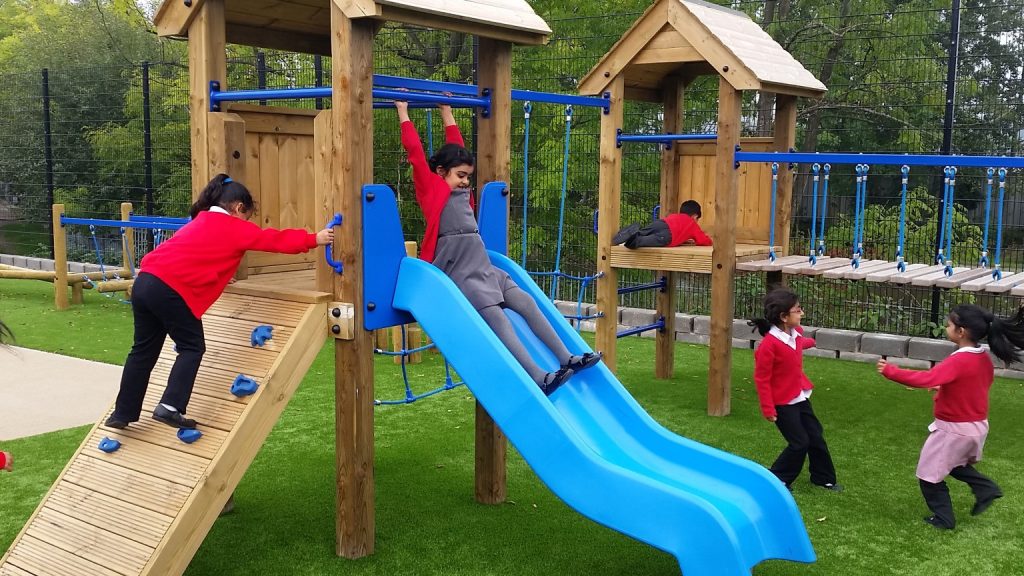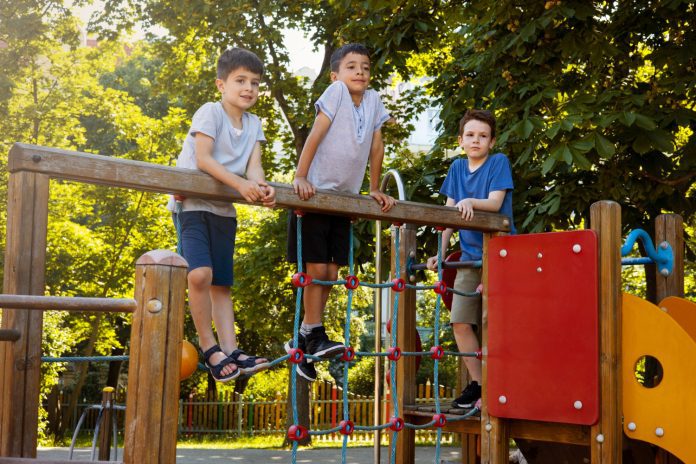In today’s fast-paced world, filled with screens and scheduled activities, it’s easy to overlook the simple yet profound importance of outdoor play for your child’s development. However, countless studies and developmental experts have consistently highlighted the essential role outdoor play plays in a child’s physical, cognitive, social, and emotional well-being.
This comprehensive blog dives deep into the benefits of outdoor play for your child, exploring the various ways it fosters their development across different aspects. We’ll also explore tips for encouraging outdoor play (even in space-limited environments) ensuring your child can reap the immense benefits of nature’s playground.
Why Outdoor Play Matters: A Multitude of Benefits
Unstructured outdoor play provides a plethora of benefits that contribute significantly to a child’s overall development. Here’s a breakdown of the key areas where outdoor play makes a positive impact:
- Physical Development:
- Gross Motor Skills: Running, jumping, climbing, and exploring the outdoors naturally encourage the development of large muscle groups. Outdoor play provides ample space for these movements, which are crucial for building coordination, balance, and agility.
- Fine Motor Skills: Activities like digging in the sand, manipulating sticks and stones, and building with natural materials like leaves and twigs help strengthen fine motor skills essential for writing, grasping objects, and manipulating buttons.
- Sensory Stimulation: The outdoors offers a symphony of sights, sounds, smells, textures, and temperatures. Engaging with these sensory experiences helps children develop their sensory processing skills and learn to navigate the world around them.
- Healthy Weight Management: Outdoor play encourages physical activity, which helps combat childhood obesity and promotes healthy weight management habits.
- Cognitive Development:
- Problem-Solving and Critical Thinking: Outdoor play allows children to experiment, take risks, and solve problems independently. Whether it’s figuring out how to build a sandcastle or climb a tree, children learn to approach challenges creatively and develop critical thinking skills.
- Curiosity and Exploration: The natural world is filled with wonders waiting to be discovered. Outdoor play ignites children’s curiosity and encourages them to explore their surroundings, fostering a love for learning and discovery.
- Imagination and Creativity: Free play outdoors allows children to use their imaginations to create worlds, enact scenarios, and engage in imaginative play. This is essential for cognitive development and fosters creativity that transcends structured activities.
- Social and Emotional Development:
- Social Skills Development: Outdoor play provides opportunities for a child’s development to interact with peers, collaborate on projects, and build friendships. They learn to share, communicate effectively, and resolve conflicts in a social setting.
- Emotional Regulation: Physical activity releases endorphins, which have mood-boosting effects. Outdoor play can help child’s development manage stress, regulate emotions, and improve their overall well-being.
- Confidence and Self-Esteem: Successfully mastering physical challenges outdoors, like climbing a tree or learning to ride a bike, boosts children’s confidence and self-esteem. Outdoor play allows them to feel a sense of accomplishment and build a positive self-image.

Beyond Benefits: Addressing Concerns about Outdoor Play
While the benefits of outdoor play are undeniable, some parents might express concerns:
- Safety: It’s understandable to worry about your child’s safety outdoors. However, with proper supervision and age-appropriate activities, the risks can be minimized. Focus on teaching your child safe play practices and establishing boundaries in unfamiliar environments.
- Lack of Time: Busy schedules can make it challenging to prioritize outdoor play. Even short bursts of outdoor time can make a significant difference. Integrate outdoor activities into your daily routine, even if it’s just a quick walk to the park or playing in your backyard for 30 minutes.
- Limited Space: Living in an apartment or having a small yard doesn’t have to limit outdoor play opportunities. Explore local parks, playgrounds, and community gardens, or even utilize fire escapes or balconies for creative play spaces.
Case Study: Witnessing the Transformation Through Outdoor Play
Sarah noticed her 4-year-old son, Ethan, becoming increasingly restless and easily frustrated indoors. She decided to prioritize outdoor play by taking him to the park every afternoon.
Within a few weeks, Sarah observed a positive transformation. Ethan became more active, engaging in imaginative play with other children. His frustration levels decreased, and his overall mood improved significantly.
Fostering a Love for the Outdoors: Encouraging Outdoor Play
Here are some practical tips to encourage your child to embrace the outdoors:
- Lead by Example: Children learn by observing their parents Show your own enthusiasm for the outdoors by going for hikes, playing games in the park, or simply enjoying a cup of coffee on your balcony.
- Make it Fun and Engaging: Focus on activities that spark your child’s interest. Go on nature scavenger hunts, build forts, plant a small garden together, or play frisbee in the park. Tailor the activities to their age and interests to keep them engaged.
- Minimize Screen Time: Limit screen time and encourage unplugged playtime outdoors. This allows them to explore their creativity, connect with nature, and reap the benefits of unstructured play.
- Provide Opportunities, Not Pressure: Don’t force outdoor play. Offer opportunities and let your child take the lead. Their natural curiosity will often guide them when presented with the chance to explore the outdoors.
- Dress for the Weather: There’s no such thing as bad weather, just bad clothing choices! Ensure your child has appropriate clothing for the weather so they can comfortably enjoy outdoor play all year round.
- Embrace the Mess: Outdoor play can get messy! Let go of the need for perfect clothes and allow your child to embrace the joy of digging in dirt, splashing in puddles, or building sandcastles. The learning and development gained far outweigh a few stains.
- Connect with Nature: Help your child appreciate the natural world around them. Point out interesting sights and sounds, identify different plants and animals, and teach them about the importance of environmental conservation.
- Incorporate Outdoor Learning: Learning doesn’t have to be confined to classrooms. Take advantage of the outdoors for educational experiences. Identify constellations at night, measure rainfall, or collect leaves to create a nature collage.
Wrap Up
By prioritizing outdoor play and fostering a love for nature, you’re not just giving your child a fun activity; you’re investing in their overall well-being. From physical and cognitive development to social and emotional growth, the benefits of outdoor play are far-reaching and long-lasting. So, unplug, step outside, and create lasting memories with your child while they explore the wonders of the natural world. Remember, the greatest classroom is often found beneath the open sky.


















